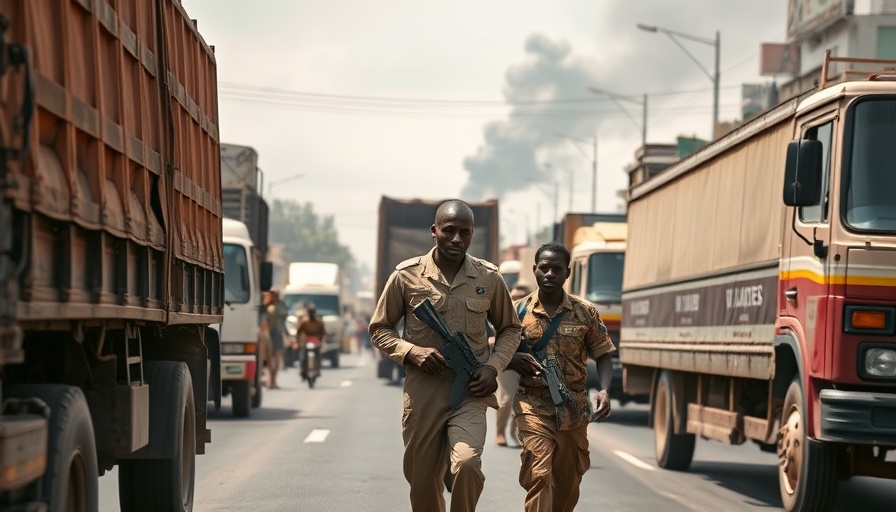
Growing Terrorism Threat in West Africa: A Diplomat's Insight
Recent warnings have emerged about the escalating threat of terrorism in West Africa, particularly in the Sahel region. Robert Fowler, a former Canadian diplomat who survived a harrowing 130-day captivity by al-Qaida in the Sahara Desert, emphasizes that this issue deserves urgent attention. In a recent interview, Fowler highlighted the increasing power of groups like al-Qaida in the Islamic Maghreb (AQIM), which are actively trying to expand their influence along the western coast of Africa. According to Fowler, such efforts could translate into more significant threats to North American security.
A Deeply Entrenched Commitment to Terror
Fowler's insights are grounded in his firsthand experiences. He observed that the militants he encountered in the desert were not only deeply committed to their cause but also resolutely prepared to die for it. This level of commitment makes it exceedingly challenging to deter these groups through conventional means. Fowler remarks that discussions or diplomatic efforts are unlikely to sway individuals who have dedicated themselves so fervently to terrorism.
Historical Context: The Rise of AQIM
The history of AQIM dates back to its formation as a splinter group of Algeria’s GSPC (Salafist Group for Preaching and Combat) in the early 2000s. The group capitalized on the weak security framework of the Sahel region, exploiting the chaos that followed the Libyan Civil War in 2011. Since then, AQIM has expanded its foothold across several countries including Niger, Burkina Faso, and Mali, conducting numerous attacks against civilians and military personnel alike.
The Role of International Support
Fowler argues that eradicating these terrorist groups will require not just national efforts but a robust international response. He asserts that Canada should commit to longer-term strategies focused on counterterrorism alongside other global partners. Strengthening local security forces and enhancing international intelligence-sharing can prove crucial in combating the surge of terrorism.
Current Trends: Terrorism's Cost to Civilians
As terror threats continue to rise, so does the suffering of civilians caught in the crossfire. For instance, attacks on schools, markets, and community gatherings have become frequent in Mali and Burkina Faso. According to the Global Peace Index, the situation in these countries has worsened, leading to increased displacement of over a million people within the region. A concerted effort must be made to provide humanitarian aid to those affected while addressing the underlying issues that fuel these terrorist movements.
Future Predictions: The Path Ahead
Looking ahead, experts predict that the terrorism landscape in West Africa will continue to evolve. New alliances may form among regional groups seeking to broaden their reach, potentially collaborating with other extremist factions across the continent. This could challenge existing counterterrorism frameworks, necessitating an adaptive approach that focuses on understanding the complexities of each group’s motivations. Investing in educational and economic opportunities may also prove essential in mitigating the allure of extremist ideologies.
Counter Perspectives: Diverse Views on Addressing Terrorism
While there is consensus on the need for a robust response to terrorism, varying perspectives exist on how best to achieve this. Some argue for a military-first approach, while others emphasize addressing the socioeconomic roots of extremism. Engaging local communities and respecting cultural sensitivities will be vital for any long-term strategies to succeed.
Conclusion: Taking Action Against Terrorism
In the face of the increasing threat from terrorism in West Africa, there is a pressing need for both awareness and action. As Robert Fowler highlights, Canada's and the international community's commitment to combating this issue is crucial. It is not just a regional dilemma; the implications extend far beyond borders, affecting global security. It’s time to recognize the full scope of the challenge and mobilize a comprehensive response that prioritizes both military action and long-term developmental initiatives to ensure peace and stability in this vulnerable region.
 Add Row
Add Row  Add
Add 




 Add Row
Add Row  Add
Add 

Write A Comment